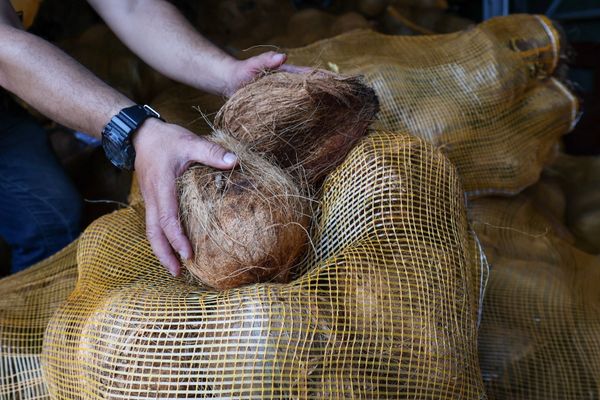PUTRAJAYA, April 19 — The opening of the fresh coconut market to China under the newly established Protocol on Phytosanitary Requirements marks a significant step forward in enhancing biosecurity controls and establishing a more systematic approach to traceability in the production of high-quality Malaysian young coconuts.
Department of Agriculture (DOA) director-general Datuk Nor Sam Alwi said that Malaysia will begin exporting young coconuts for fresh beverage consumption, with priority given to premium aromatic varieties, particularly the pandan coconut, known for its distinctive pandan fragrance and a natural sweetness level of approximately 6.7 degrees Brix.
Previously, Malaysia had been exporting young coconuts to China based solely on general phytosanitary certificates, without any specific protocol in place.
“With the implementation of this protocol, greater emphasis is now placed on the requirements for registered farms, adherence to Good Agricultural Practices (myGAP), and compliance with the Integrated Pest Management system. These measures will ensure that only high-quality and safe young coconuts are exported in line with international standards,” she said in a statement today.
As such, Nor Sam encouraged more local entrepreneurs, particularly those cultivating fragrant varieties like the pandan coconut, to seize this opportunity. She urged them to register their farms for myGAP certification and ensure that their processing facilities comply with the necessary standards to qualify for export under the new protocol.
Nor Sam added that opening access to the Chinese market is also part of a long-term strategy to diversify export destinations for Malaysian agricultural products.
Malaysia’s coconut production reached 624,000 metric tonnes in 2023, with 6,000 metric tonnes of that comprising young coconuts exported abroad.
In contrast, Malaysia imports large volumes of mature coconuts — exceeding 278,000 metric tonnes — to meet the specific requirements of the coconut-based processing industry, including the production of coconut milk, kerisik, desiccated coconut, and related products.
Through the DOA, the Agriculture and Food Security Ministry (MAFS) continues to prioritise the development of the coconut industry as part of efforts to increase the national self-sufficiency ratio (SSR) for coconuts.
Under the 12th Malaysia Plan, RM10 million has been allocated for the Coconut Industry Development Project and RM6.25 million for the Coconut Seed Strengthening Project. The plan aims to boost the nation’s coconut production to 669,000 metric tonnes by 2030.
She said a range of incentives has been provided to coconut growers, including agricultural inputs such as seedlings, fertilisers, and pesticides, along with support for basic plantation infrastructure, which covers initiatives such as new planting, replanting, rehabilitation of ageing trees, and crop integration.
Beyond physical assistance, the DOA is also actively conducting theoretical and practical training programmes for coconut entrepreneurs nationwide. These programmes cover a range of topics, including planting techniques, modern agronomic practices, and compliance with export standards and food safety requirements.
Malaysia's three main coconut-producing states are Selangor, Johor, and Perak. Of the total coconut cultivation area, 93 per cent is managed by smallholders, while the remainder is operated by estates (6.5 per cent) and government agencies (0.5 per cent).
“It is estimated that there are around 60,000 coconut growers nationwide. In terms of output, smallholders contribute over 80 per cent of the country’s total coconut production. This clearly demonstrates that their involvement, supported by all relevant stakeholders, is central to the growth and sustainability of Malaysia’s coconut industry,” Nor Sam said.
Malaysia officially received approval to export fresh coconuts to China following the signing of a Memorandum of Understanding between both countries on April 16, which was held in conjunction with Chinese President Xi Jinping's three-day state visit.
— Bernama




